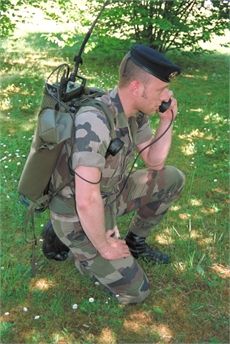WASHINGTON, Feb. 23, 2011 — A Defense Department pilot program to add foreign language proficiency to its officer corps is growing dramatically, the department’s head of foreign languages said.
The department began the ROTC Skill Proficiency Bonus in 2008 at the request of Defense Secretary Robert M. Gates to encourage the study of languages critical to the armed services.
Congress authorized DOD’s request as part of the 2009 National Defense Authorization Act, and the pilot program is funded through the Services until the end of 2013, when the authorization expires.
Although it began with just 29 students, the program has grown to more than 1,800, Nancy Weaver, director of the Defense Language Office, said during a Feb. 18 interview with American Forces Press Service and the Pentagon Channel.
“We want to make sure all the ROTC personnel get wind of it and it doesn’t lose its momentum,” Weaver said.
The program pays a skill proficiency bonus to qualified ROTC students who take foreign language or culture classes, Weaver said. Students can earn as much as $3,000 per year, depending on the classes they take. The highest stipends are paid advanced-level classes in high-demand, strategic languages such as Chinese, Japanese, Arabic, Swahili, Uzbek, Dari and Pashto, she said.
Students can take part in language immersion programs that send them to a foreign country for two to four weeks in the summer, which Weaver added is a great way to improve language skills.
The program is important for giving young officers a better foundation for military service, Weaver said. “We’re living in a very global environment, more so than any other time in history,” she said. “We find that our officers need a global perspective.”
Students do not have to be language or linguistics majors to qualify for bonuses, Weaver said, and most will find they don’t use the languages daily when they enter service. Still, she added, the background makes them better-prepared officers and gives them high-value skills.
“It gives you insight and understanding into a country or culture,” Weaver said. “It’s that global perspective that makes a more aware officer who is flexible and adaptable regardless of the environment they are put into.
“It makes them mission ready and more expeditionary prepared,” she added.
The Department of Defense Education Activity provides foreign language classes in its elementary schools. In addition, DOD’s National Security Education Program supports partnerships with schools in Oregon and Ohio, where students begin learning Chinese languages in the first grade. Successful completion of the foreign language program through high school makes them eligible for a scholarship at participating flagship universities, she noted.
While demand for foreign languages is increasing in the military, in corporations and among students, Weaver said, some colleges and universities are reducing foreign language courses as a cost-saving measure.
“Unfortunately, not a lot of programs require language study,” she said. “It used to be a requirement for a college degree, but that’s not been the case for the past several years. A number of institutions do not teach languages at all.”
ROTC students at colleges that don’t offer foreign languages should ask whether their school has an agreement with another school in the area to take part in a language program, Weaver said. The bonus could be used toward that program, she added.
Source:
U.S. Department of Defense
Office of the Assistant Secretary of Defense (Public Affairs)

 von
von 
